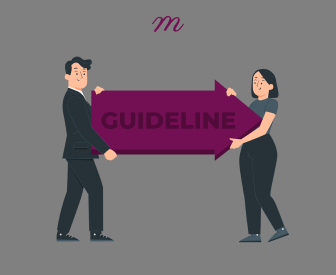Have your progress notes written for you automatically
Are you a passionate social worker eager to make a difference in people’s lives, but could you use expert guidance on the most effective intervention methods for your diverse clientele? Look no further! Get ready to dive into an exhilarating and comprehensive blog that covers everything you need to know about social work interventions, from tried-and-true evidence-based practices to innovative strategies that will take your interventions to the next level. With this valuable knowledge, you can confidently tailor your interventions to each client’s unique needs and goals and make a powerful, positive impact on their lives. So, take a deep breath and prepare for an exciting journey transforming how you approach your work as a social worker!
What is a Social Work Intervention?
Social work interventions involve social workers actively engaging with individuals, families, groups, or communities who need help to bring about positive change. As social workers, our primary goal is to assist them in overcoming the obstacles that prevent them from reaching their full potential. We recognize that dealing with life’s challenges can be difficult, and that is where our interventions can make a difference.
Typical Interventions Include:
Psychoeducation
Teaching clients about their condition and treatment options.
Case management
Coordinating services to address complex needs.
Counseling
Helping clients develop insight and make positive changes through discussion.
Crisis intervention
Providing immediate support in emergencies.
Advocacy
Promoting policies and practices that advance human rights and social justice.
Social Work Intervention Models
As a social worker, you are responsible for ensuring the well-being of the individuals, families, groups, organizations, and communities you work with. This requires monitoring progress closely and adjusting to achieve the best possible outcomes. You must be familiar with various intervention models and strategies to strengthen your practice.
Social Work Intervention Plans
Social work intervention plans are crucial tools for social workers to assist individuals, families, or groups in need. A well-planned intervention helps ensure a social worker systematically addresses a client’s needs and goals. It also provides accountability by specifying objectives and deadlines and gives clients something concrete to review to track their progress. Social workers should thoroughly assess clients and their situations to create a successful intervention plan. They should then determine realistic goals and objectives and outline specific strategies, resources, and timelines. Finally, they should review and revise the plan regularly to ensure positive progress. By choosing interventions tailored to the client’s unique needs and strengths, social workers can empower their clients on their journey to well-being.
Some examples of standard intervention plans include:
Safety plans
To address risks like abuse, self-harm, or addiction relapse.
Behavior plans
To help change unhealthy behaviors and build life skills.
Crisis plans
To prepare for and respond to emergencies.
Discharge plans
To ensure a smooth transition when clients exit a program or facility.
Social Work Intervention Strategies
Some key intervention strategies social workers employ include:
Motivational Interviewing
This approach helps people uncertain about making a change identify their reasons for changing and become motivated to change their behavior. The social worker asks open-ended questions that allow the client to explore their reasons for wanting to change and express statements encouraging themselves. For instance, the social worker might ask questions like, “What do you enjoy about your current situation?” and “What do you not like?” to help the client weigh the advantages and disadvantages of maintaining the current state versus changing.
Cognitive Behavioral Therapy (CBT)
CBT is a type of therapy that focuses on the connection between thoughts, feelings, and actions. CBT aims to help the client identify negative and unhealthy thoughts and replace them with more positive and constructive ones. Additionally, CBT provides coping strategies that can be used to manage stressful events and symptoms better. For example, a social worker may use CBT to assist a client with social anxiety disorder in challenging irrational thoughts about social interactions and teach relaxation techniques that clients can use in anxiety-provoking situations.
Solution-Focused Brief Therapy (SFBT)
SFBT emphasizes solutions and the client’s strengths instead of concentrating on problems. During this therapy, the social worker asks questions to help the client visualize a desired future and take small steps toward positive change. For instance, the social worker may ask the client, “What would be different if a miracle solved your problem tomorrow?” which helps the client to articulate their vision for positive change.
Task-Centered Practice
The task-centered practice approach is a method that aims to achieve change through accomplishing specific objectives and tasks. The social worker and client work together to set and break goals into smaller, more manageable steps. For instance, the social worker may assist the client in creating an action plan for finding employment, which may involve updating their resume, networking, and applying to a certain number of job openings weekly.
Micro, Mezzo, and Macro Interventions in Social Work
As a social worker, you’ll need to address the needs of your clients and communities through various interventions. The three primary social work intervention methods are micro, mezzo, and macro.
Micro-level interventions
Micro-level interventions are aimed at individuals, couples, or families to deal with personal issues and bring about positive change. As a social worker, your role could involve providing counseling, skill-building, therapy, advocacy, case management, crisis intervention, or narrative therapy services to your clients. This includes assisting clients in developing coping strategies for anxiety or helping families find community resources.
Mezzo-level interventions
Mezzo-level interventions target small groups, local organizations, and communities to improve the well-being of the larger group. Examples of mezzo interventions include organizing community events, running support groups, connecting people with local resources, and participating in community development. Social workers, for example, may work with a local school to improve its anti-bullying program.
Macro-level interventions
Macro-level interventions involve different approaches, such as analyzing policies, running political campaigns, participating in social movements, and advocating for new legislation. Social workers, for instance, can help by pushing for increased funding for affordable housing programs through lobbying efforts and advocating for policy changes.
How to Craft Successful Social Work Interventions
Social workers play a crucial role in creating effective intervention plans that can positively change their clients’ lives. By utilizing care, skill, and compassion, social workers can tailor the intervention plan to each client’s unique needs. This involves collecting information through client assessments, identifying appropriate goals, and selecting customized interventions that can motivate clients and assist them in attaining greater well-being and independence. With the right approach, social work intervention plans can empower clients to overcome their challenges and lead fulfilling lives.
- Perform a comprehensive bio-psycho-social evaluation to gain insights into the client’s history, mental health, relationships, and environmental factors. This aids in identifying the underlying causes of their difficulties.
- Set specific, measurable goals the client agrees to, like improving self-care, relationship skills, or daily functioning. Keep goals realistic and achievable to increase motivation and success.
- Develop a comprehensive intervention plan that includes frequency of contact, activities, homework, and ways to measure progress. Regularly review and update the plan based on client feedback and improvement.
- Help clients feel heard and supported, capable of positive change by using active listening, motivational interviewing, and empowerment skills. Strengthen interventions by building trust and rapport.
How to Choose the Right Intervention Strategy for Each Client
Social workers have a vital role to play in supporting individuals who are going through difficult times. To provide practical assistance, social workers must take a comprehensive approach and consider the client’s background, values, mental health, risk factors, strengths, skills, resilience, and goals. By doing so, social workers can determine the most appropriate intervention strategies and involve the client. Working collaboratively with the client is essential to develop an approach that both parties feel confident with. Selecting the proper intervention method requires careful consideration of the client’s preferences, resources, and support systems. Social workers can guide their clients toward overcoming challenges and achieving their goals by adopting a constructive approach.
The following factors can also help in formulating an effective strategy:
The Severity of the Issue
Immediate action is necessary during crises, but less severe concerns may allow time for exploration.
Client Preferences
It’s essential to discuss which approach your client prefers with them. Some may want a more directive approach, while others want to be more involved in the solution development.
Available Resources
When considering available services to support the client, if options are limited, it may be necessary to use methods requiring fewer resources. It is also important to explore additional resources.
Cultural Understanding
When working with clients, it is crucial to consider their cultural beliefs and values and adapt interventions accordingly. This includes sensitivity to how different cultures view mental health issues and the social worker’s role.
Likelihood of Success
Evaluate the strategies that could positively impact your client based on their circumstances. Success relies on the right fit, motivation, and follow-through. Identify barriers to determine the most viable options.
Essential Skills for Implementing Social Work Interventions
To make a meaningful difference in the lives of their clients, social workers need to possess a comprehensive understanding of the skills required to address their specific needs. By constantly improving and expanding their knowledge, they can confidently select and apply appropriate interventions tailored to their client’s unique situations.
By developing these skills, social workers can become even more impactful catalysts for change and their hard work will be rewarded with the satisfaction of transforming lives for the better. Explore ways to enhance your documentation flow here with Mentalyc.
To implement effective interventions, social workers require a diverse array of skills, such as:
Communication
Social workers need to possess excellent communication skills to establish a connection with their clients who belong to diverse backgrounds. They should be empathetic listeners and pay close attention to their clients’ situations to build mutual trust and respect. Social workers must have strong verbal and written communication skills to advocate for social change and clearly and accurately convey their ideas, interventions, and strategies clearly and accurately. Engaging in compassionate dialogue, asking thoughtful questions, and having difficult conversations are all necessary skills social workers must possess.
Assessment
To provide effective assistance, it is essential to take a comprehensive approach to assessing the client’s needs and circumstances. This approach involves considering various factors such as their physical, emotional, and social well-being, as well as their relationships, living environment, and any obstacles that may be hindering their growth. Additionally, evaluating the client’s readiness for change can help identify the most appropriate interventions to meet their needs. By conducting a thorough assessment, we can better understand our clients and provide them with the necessary support and tools they need to thrive.
Creative and Critical Thinking
Social workers play a critical role in analyzing complex situations and developing interventions specifically tailored to meet the unique needs of their clients. To achieve this, social workers must be creative, resourceful, and willing to modify standard interventions to each client’s specific needs. By setting clear goals, evaluating progress, and making ethical and objective adjustments as needed, social workers can provide clients with the support and guidance they need to achieve their desired outcomes.
Cultural Awareness
As social workers, we are responsible for providing interventions that respect and honor our clients’ cultural identities and backgrounds. To achieve this, we must acknowledge our biases and strive to provide culturally sensitive services that empower our clients. We can make our interventions more effective and meaningful by showing respect and understanding towards individuals with diverse cultural backgrounds. It’s crucial to select interventions that align with a client’s cultural beliefs and values and address any language or accessibility barriers. We can achieve better client outcomes when we deeply understand cultural relevance and necessity.
Resource Knowledge and Flexibility
As a social worker, being aware of various community resources, referral options, and collaborative services that can benefit your clients is crucial. A strong support network can significantly improve your client’s well-being. To provide the best possible services, it is essential to stay updated with the latest resources and be flexible with interventions, adjusting them based on each client’s response and available resources in the community. Continuous education is vital to staying up-to-date with new approaches and interventions, ensuring you can provide your clients with the best support.
Advocacy
It is essential to understand that specific clients may need help at a broader, systemic level. As a social worker, it is your responsibility to take action by advocating for policy changes or addressing social injustices that impact your clients and communities. Advocacy plays a vital role in the social work profession as it can create positive change and foster a more fair and equal society.
Conclusion
As a social worker, your knowledge of various intervention models can make a significant difference in the lives of those you serve. Equipping individuals, families, and communities with the tools they need to overcome obstacles and achieve their goals gives you the power to bring about transformational change. With your diverse skills and innovative tools like Mentalyc, you can streamline administrative work and dedicate more time to helping those in need by harnessing the power of AI to create comprehensive and accurate case notes within minutes. Start your free trial today! Together, we can make a fundamental difference in the world and improve countless lives!
FAQ on Social Work Intervention Plans, Strategies, Models, and Methods
With the right tools and training, social workers can significantly impact people. Intervention plans, strategies, models, and methods are essential to guide their work effectively. They help individuals manage challenges and improve their well-being. Below are some frequently asked questions and answers about these tools:
What is a social work intervention plan?
An intervention plan outlines a social worker’s goals and steps to help a client. Plans consider a client’s needs, strengths, and challenges to determine the best way to support them.
What are examples of intervention strategies?
Strategies include case management, counseling, advocacy, education, and community organization. A social worker chooses strategies based on a client’s situation and goals.
What are the main social work intervention models?
Models include problem-solving, solution-focused, cognitive-behavioral, and strengths-based. Each model provides a framework for how to help clients. Social workers pick models that match a client’s needs.
How do I choose the right interventions?
Consider the client’s challenges, needs, strengths, and goals. Also, consider the evidence for the effectiveness of different interventions. The right interventions will uphold ethical standards, respect client values, and have the best chance of helping the client.
Resources:
- Baylor School of Social Work Team. (2023, May 31). The 3 Levels of Social Work Explained: Micro, Mezzo, Macro. https://gsswstories.baylor.edu/blog/the-3-levels-of-social-work-explained
- Social Work License ap. (2022, October 31). Theories & Practice Models Used in Social Work. https://socialworklicensemap.com/social-work-resources/theories-and-practice-mo els/
- Social Work Portal. (n.d.). Best Guide to Social Work Interventions, Examples, Plans & Strategies. ttps://www.socialwokportal.com/social-work-intervention/
- Sutton, J. (2021, July 11). 13 Social Work Methods & Interventions for Helping Others. Positive Psychology.https://positivepsychology.com/social-work-methods/
- University of Nevada. (2022, Apr l 12). 11 Important Social Work Theories and Methods. https://onlinedegrees.unr.edu/blog/social-work-theories-and-methods/
Disclaimer
All examples of mental health documentation are fictional and for informational purposes only.








